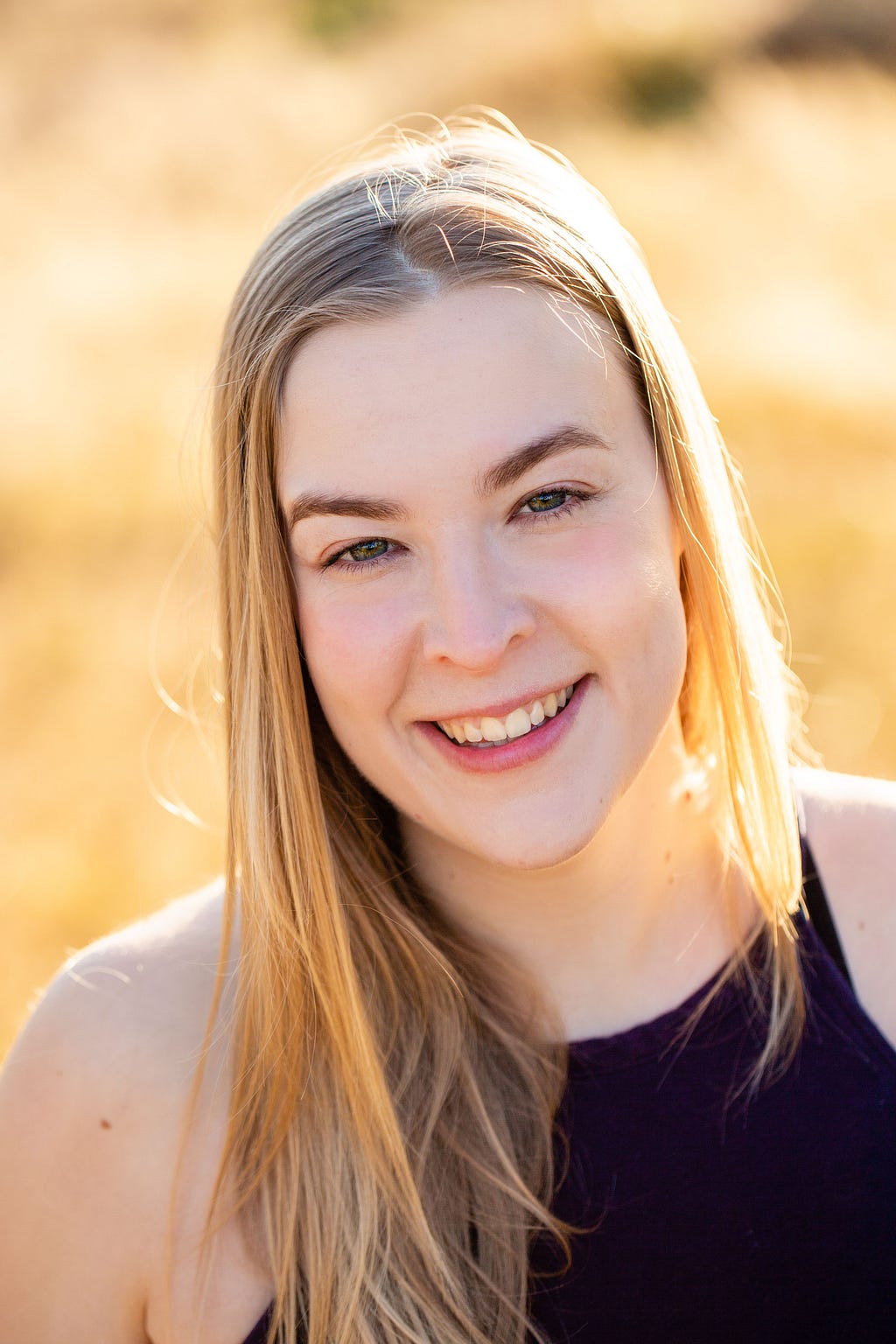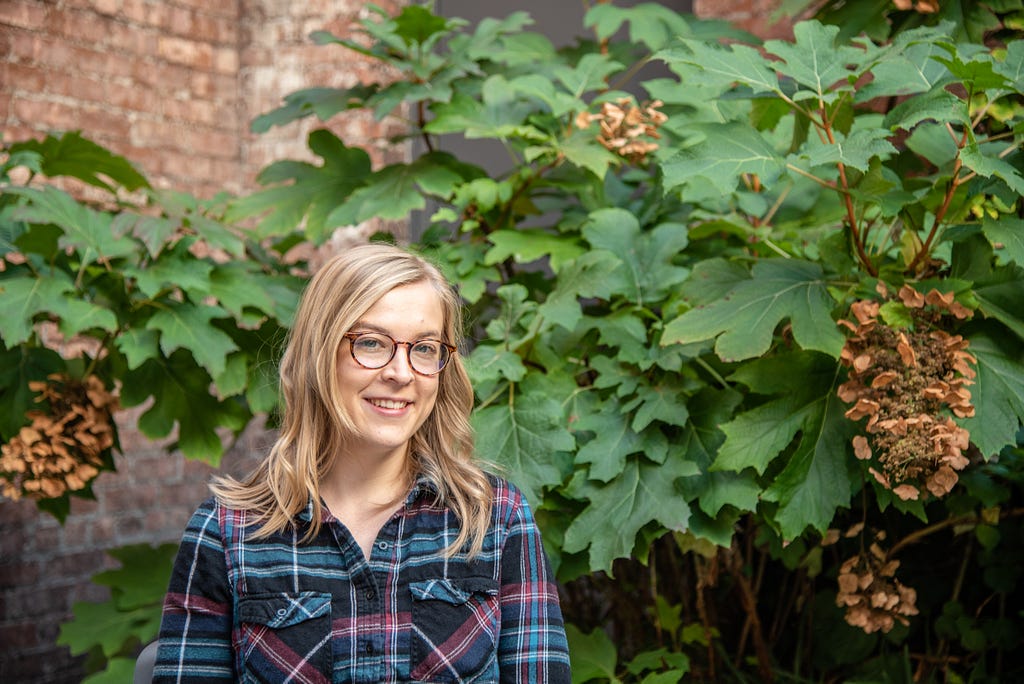Women In Wellness: Yasmin Harvey On The Five Lifestyle Tweaks That Will Help Support People’s Journey Towards Better Wellbeing
An Interview With Candice Georgiadis

You need to take care of your own mental health when working in the healing field. Working with survivors is an absolute privilege. At the same time, talking about and dealing with the after effects of trauma every day can be heavy and sometimes triggering. I learned the hard way how important it is to switch off, engage in my own mental health practices, surround myself with great people and have fun.
As a part of my series about women in wellness, I had the pleasure of interviewing Yasmin Harvey.
Yamin Harvey is a trauma informed yoga teacher and writer based in New York. She predominantly works with survivors of domestic violence and folks with PTSD. She is an advocate for the inclusion of trauma based body work in mental health treatment.
Thank you so much for joining us in this interview series! Our readers would love to “get to know you” better. Can you share your “backstory” with us?
I am a trauma informed yoga teacher and writer. I became a trauma informed yoga teacher after finding yoga to be a significant tool in my own healing journey from C-PTSD. As much as I enjoyed attending “mainstream” yoga classes, I found that I was often triggered and sometimes classes actually increased my C-PTSD symptoms.
I set out to find a way of practicing where trauma survivors could enjoy the benefits of yoga with less chance of being “triggered”. I discovered trauma informed yoga and I went on to train as a teacher.
Trauma informed yoga is an evidence based practice which uses techniques such as breathwork, mindfulness and movement to allow trauma survivors to reconnect with their bodies. Trauma informed yoga aims to provide survivors with a sense of empowerment which comes from having the choice regarding what to do with their own bodies. The practice also provides survivors with tools to help regulate the nervous system on a day to day basis.
My background is also in acting, and I also teach yoga to actors. I have found myself incorporating the foundations of trauma sensitive yoga classes into my work with actors and I have been surprised at how important and effective it has been. It has shown me that there are so many of us who are living with the effects of trauma and I am passionate about bringing body based healing to the forefront of mental health treatment.
Can you share the most interesting story that happened to you since you started your career? What were the main lessons or takeaways from that story?
I have been fortunate enough to work with some incredible and brave people. I recently worked with a gentleman who had never tried yoga. He came to a workshop I was running and he was a little resistant to say the least. I encouraged him to take part in the class at his own pace, and reminded him that there was no pressure to take part/keep up. He actually had a great time and is now one of my students. I think the biggest takeaway from this experience was that in order to benefit from any form of healing practice, it needs to be done at your own pace.
Can you share a story about the biggest mistake you made when you were first starting? Can you tell us what lesson you learned from that?
When I first started out I was extremely focused on making sure that I did absolutely everything by the book. Which initially came at the expense of connection to my students. When you spend so much time following a rigid plan and focusing on what you are saying/doing, it makes it hard to genuinely connect to your students. Now, my number one focus is how my students are feeling and what they hope to get from our time together, rather than following a specific blueprint for our class.
Let’s jump to our main focus. When it comes to health and wellness, how is the work you are doing helping to make a bigger impact in the world?
When I was looking for help following my C-PTSD diagnosis, I was frustrated at the lack of progress I was making with traditional talk therapy and medication. I was still feeling very real physical symptoms like not being able to sleep and feeling hypervigilant. The more I studied about mind/body healing, the more I realized that I was missing a major part of the puzzle. When I really started to look at how stress, anxiety and trauma was affecting my body, that is when the real healing began for me.
I spend a lot of my time working with survivors of domestic violence. This has been my most profound experience so far. Watching women take back a sense of control and gain a sense of empowerment has been amazing.
Through teaching trauma informed yoga and raising awareness about the effectiveness of trauma informed body practices, I hope to bring body based healing practices into mainstream mental health treatment.
Can you share your top five “lifestyle tweaks” that you believe will help support people’s journey towards better wellbeing? Please give an example or story for each.
The biggest lifestyle tweak for me is listening to my body. Your body is uniquely yours and not everything is beneficial for you. For example, I recently went to a yoga class. I found the class hugely triggering and from that experience I realized that that style of class is not the best thing for my body at the moment. Listening to my own body and not comparing what feels good for me to what feels good to others has been so vital for me.
Exercise as often as you can. Cliche I know, but I genuinely notice an enormous difference in my mental health when I work out. Cardio is especially effective at helping to reduce adrenaline and cortisol levels, the hormones which contribute to stress and anxiety.
Find people who you can feel safe and supported around. I recently moved back to New York after the pandemic and like many people, my friendship network has changed significantly so I have had to actively rebuild a support network. Building friendship and connection is so important in helping to weather the storms..
Take time to process. Burnout cultures encourage us to be on the go all of the time. But what we don’t deal with emotionally does eventually come back in one way or another. In a culture which encourages us to gloss over our emotions, you can feel like an outlier if you are feeling and processing your emotions as they come up. I think this is best summed up in one of my favorite quotes, “if you listen to your body when it whispers, you won’t have to hear it scream”.
Experiment with what you need to maintain good mental health. Maybe it’s a certain type of therapy or exercise/ practice; it is not a one size fits all. There are so many different tools out there. In fact, I recently learned about trauma informed weight lifting! It may take a while to figure out what combination of things make a difference but there is usually no harm in trying.

If you could start a movement that would bring the most amount of wellness to the most amount of people, what would that be?
In short, I would like to bring awareness of how stress and trauma affect our bodies and how the body can be used as a tool to heal.
What are your “5 Things I Wish Someone Told Me Before I Started” and why?
You will never feel like you know it all! Everyday I realize there is more I don’t know and more that I want to know!
You learn the most from your students. I have learned more from my students than any course I have ever been on.
You need to take care of your own mental health when working in the healing field. Working with survivors is an absolute privilege. At the same time, talking about and dealing with the after effects of trauma every day can be heavy and sometimes triggering. I learned the hard way how important it is to switch off, engage in my own mental health practices, surround myself with great people and have fun.
Relationships are what matter the most; you can have an abundance of knowledge but relationships are what make the biggest difference, especially when it comes to students being open to the practice.
Sometimes you just have to laugh. A while ago, I taught a class via Zoom and my upstairs neighbors were moving out. It was a disruptive class to say the least. Sometimes t??????
Sustainability, veganism, mental health, and environmental changes are big topics at the moment. Which one of these causes is dearest to you, and why?
Mental health. The fast paced culture we live in leaves little time for mental health and yet the effects of poor mental health is everywhere you look.
What is the best way for our readers to further follow your work online?
My website : yasminharvey.com
IG: @yazzledazzleem
Thank you for these fantastic insights! We wish you continued success and good health.
Women In Wellness: Yasmin Harvey On The Five Lifestyle Tweaks That Will Help Support People’s… was originally published in Authority Magazine on Medium, where people are continuing the conversation by highlighting and responding to this story.

